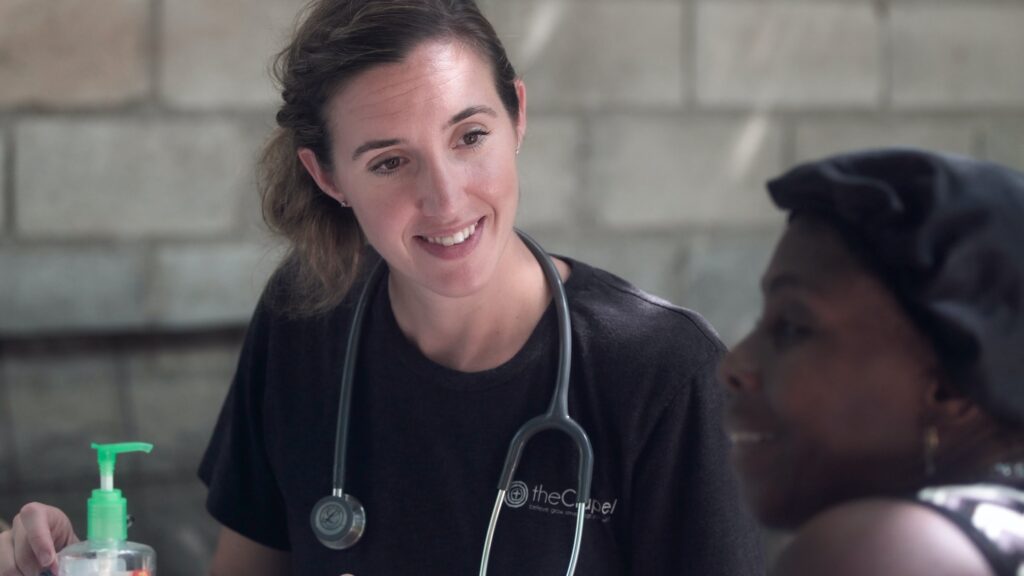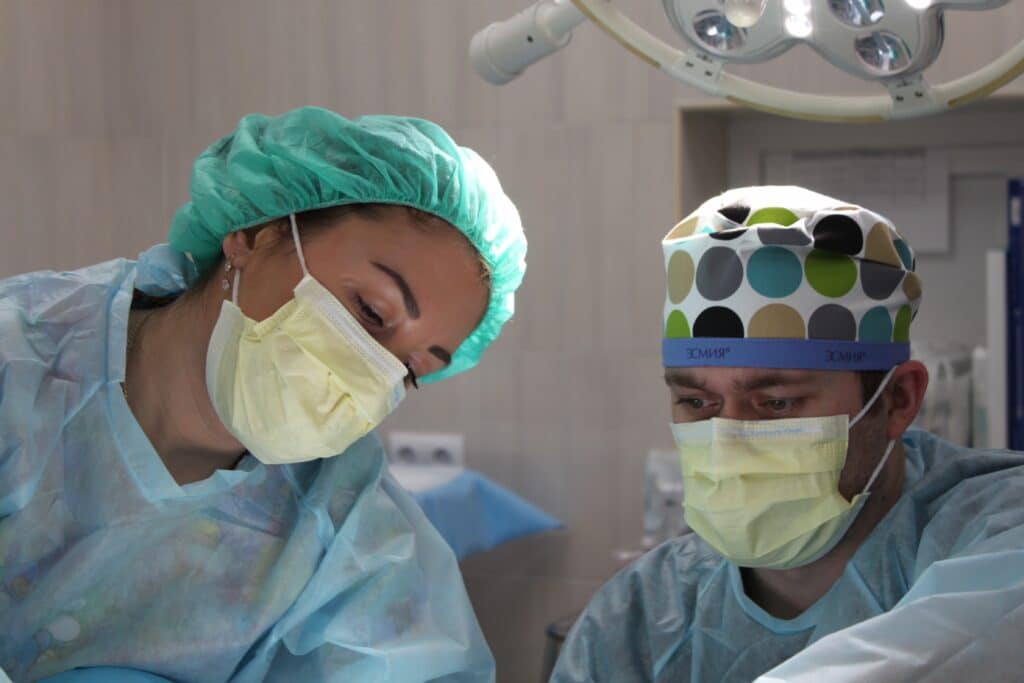
If you’re moving to France, you can look forward to accessing one of the most renowned healthcare systems in the world. It covers everything from routine visits to a doctor’s office to hospital care, dental treatments, and vision care, providing a vast infrastructure of aid for those living in France. Let’s take a closer look at exactly what to expect to get health insurance in France.
How the France healthcare system works
France boasts a universal public healthcare system known as protection universelle maladie or PUMa. Let’s take an in-depth look at how the system works.
Who can use the state health insurance scheme in France?
This French healthcare system provides wide-ranging medical coverage for anyone working in France or living in the country on a stable, continuous basis for at least three months. French citizens and all legal residents can access PUMa regardless of employment status.
Who pays for the French health insurance fund?
French residents contribute to the healthcare system through mandatory payments made to the French social security system. Employers deduct around 8% of employees’ salaries to make social security contributions and help fund the statutory health insurance system.
How does payment work through the French public healthcare system?
The French healthcare system reimburses you for a portion of whatever you pay when receiving medical treatment. If you suffer from one of the chronic illnesses on the official list, they will reimburse you 100% of the medical bills. Otherwise, there will usually be some medical fees left to pay.
Outside of treatment for the chronic conditions on the official list, getting care through France’s health care system means some out-of-pocket costs for most people. The system covers around 70 to 80% of medical expenses in most cases. The remaining costs are the responsibility of the patient.
It’s important to understand that France’s universal healthcare system works through reimbursement rather than through upfront payments. This may be different from how public insurance works in your home country.
If you have state health insurance, you’ll need to pay for your care first. Then, the government will reimburse you for the covered amount.
For example, say you undergo a few complex procedures and rack up total medical costs of €5,000 at a hospital. You would pay €5000 to cover the costs. With 80% health insurance coverage, you would then receive reimbursement of €4000 from the French government.
Is it possible to get free healthcare in France?
French residents who qualify as low-income may receive free medical treatment without going through the reimbursement process.
As mentioned, your health details may also allow you to receive free care. If you have a qualifying chronic illness, the public system covers 100% of the costs in most cases.
What is a private health insurance policy in France?
Most people in France have private ‘top-up’ private medical insurance policies, known as mutuelles. This complementary health insurance helps to pay for the leftover amount not covered by reimbursements.
When looking to get health insurance in France, it’s important to note that, unlike private health insurance in other countries such as the UK, a mutuelle is simply a form of financial assistance rather than a way to cut waiting times for treatment or access private hospitals.
Some private health insurance plans do cover care at private facilities. However, private coverage varies from policy to policy. If you’re interested in seeing medical professionals at private facilities, find out whether the plans available through private insurers provide this benefit.
Can you use a European health insurance card in France?
If you’re from a European country, you can typically participate in the French health insurance scheme and get care through public hospitals in France. You’ll need to present your card when you receive medical care, so take it with you when you travel.
Similarly, UK citizens can get care in France by presenting a UK Global Health Insurance Card, obtainable through the NHS.
Can you use international health insurance in France?
International health insurance is a type of private insurance that you buy in your home country. Whether or not you can use this private insurance in France depends on the terms of your policy. Check the details of your private coverage or contact your insurance company for more information.
What does French public health insurance cover?
The French public healthcare scheme will reimburse some of the costs of a very diverse range of services and treatments, including:
- GP consultations
- Specialist consultations
- Scans and diagnostic tests
- Hospital treatments and care
- Emergency care
- Dental care
- Maternity care
- Mental health care
- Physiotherapy and speech therapy
- Podiatry
- Eye tests, glasses, contact lenses, and hearing aids
- Prescription medication
How to access France’s healthcare system
The way to access the health insurance France provides to all residents depends on your situation.
Public health insurance for employed people
Many immigrants seeking health insurance in France will have a job secured in France before they arrive. If that’s your situation, your registration with social security and the healthcare system will usually be handled by your employer.
Public health insurance for self-employed people
Self-employed people will be automatically enrolled when they register with the Sécurité Sociale Indépendants. This form of social security is for people who don’t pay into the program through payroll withholdings.
Public health insurance for unemployed people
If you’re not working and have lived in France for at least three months, you can register yourself by filling in this form and submitting it to your local CPAM office.
CPAM stands for Caisse Primaire d’Assurance Maladie. It handles healthcare administration.
When you apply for public health insurance, a number of documents will be required, such as:
- Passport
- Birth certificate
- French residency permit
- Proof of address, such as a rental agreement and utility bills for the past three months.
Public health insurance for international students
International students in France can access the healthcare system by registering for social security here.
What to do after you register for public medical insurance
Once your details have been registered, you can create your own healthcare account here. This is highly recommended, as you can easily track your healthcare reimbursements on your account page.
You can also order your Carte Vitale through this site, although it’s also possible to apply by post using a form that will be sent to you when you register with social security.
The Carte Vitale resembles a credit card and must be presented when you make use of medical services in France – for example, at a doctor’s surgery or a hospital. The card will be inserted into a reader in order to register the service or treatment you’ve received with the healthcare system.
You’ll then get a percentage of the medical fee reimbursed to your bank account, usually within a week. Bear in mind that the Carte Vitale isn’t a payment method, so you’ll be expected to pay any money owed using cash or a bank card.
Healthcare costs

To ensure you’re eligible to get the highest possible reimbursement percentage for healthcare services in France, you must register a particular doctor as your primary care physician, or médecin traitant.
You’re free to seek out the doctor of your choice using directories such as Doctolib and KelDoc. However, you may need to shop around, as many doctor’s surgeries may be running at maximum capacity and not taking on new patients.
Once you’ve found the right doctor, they’ll officially log their status as your médecin traitant and act as your first entry point for many healthcare services in France. This means you will see the same doctor whenever you need care.
Healthcare costs will vary depending on the type of treatment and its related reimbursement percentage. For example, a standard consultation with your doctor will typically cost €25. The public health insurance system will reimburse 70% of this cost, though there’s also a flat-rate contribution of €1 that you must pay. The rest will have to be paid either by you or your mutuelle private health insurance plan.
You can find the current reimbursement rates for hospital treatments, prescription medications, dental treatments, and other services here. There are a few additional factors to bear in mind if you are looking to get health insurance in France:
- The state healthcare system’s reimbursement percentages are only applied to official base rate fees for services or treatments. In reality, doctors, dentists, opticians, and specialists may charge higher medical fees than the base rate, meaning you’ll have to pay more out of your pocket (or through a mutuelle private health insurance policy).
- While a large percentage of hospital treatment fees are reimbursed, you’ll usually be expected to pay €20 per day to cover accommodation, food, and so on. Certain patients, such as those admitted to the hospital for childbirth, are exempt from this fee. Some private health insurance policies may also cover the fee.
Mutuelle policies
As we discussed earlier, mutuelles are top-up insurance policies that contribute towards fees not covered by the public scheme. By law, private companies in France must provide employees with a top-up insurance policy and pay at least 50% of the cost.
If your circumstances differ – for example, you’re a student, self-employed, or work in the public sector – then you may want to arrange your own mutuelle policy. To get coverage, you’ll need to pay a premium. When setting rates, insurers usually consider an applicant’s age, gender, and place of residence.
Such policies are provided by banks, insurance companies, and non-profit organizations called mutuelles. It’s a good idea to take some time to compare and contrast the various packages available, paying attention to how much they cost and how much they’ll reimburse for different treatments. Two useful price comparison portals for mutuelles are Assurland and Empruntis.
It’s well worth having a mutuelle in place to cover assorted medical costs higher than the official base rate, as mentioned earlier. Plus, most mutuelle policies will give you access to 100% Santé, a relatively new initiative that slashes certain costs for eyewear, dental care, and hearing aids. Public and mutuelle insurance plans fully cover items and services listed as 100% Santé.
When choosing a health insurance plan, consider your budget and how much you can afford to pay for monthly premiums and out-of-pocket expenses.
In addition, think about your medical history as you compare health insurance options. If you’re in good health and have low medical costs, a less expensive private medical insurance plan may be adequate. Those with ongoing health issues that aren’t 100% covered in France may require more comprehensive health insurance.